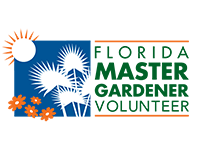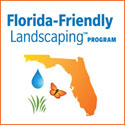The Neighborhood Gardener: Soil pH
Soil pH is a measure of the acidity or alkalinity of the soil. Homeowners and gardeners alike are interested in soil pH because it affects the growth and quality of landscape plants.
Florida Soils and pH
On the pH scale, a value of 7 is considered neutral. pH values less than 7 are acidic, and pH values greater than 7 are alkaline. The median soil pH for Florida soils is 6.1, which is characterized as slightly acidic.
Florida soils can vary widely in pH. Soils in pine woods can be quite acidic. Soils that were formed from calcium-rich materials, such as limestone or sea shells, tend to be alkaline. This is particularly true of soils in coastal areas and South Florida. Building materials in the home landscape, including concrete and stucco, may create alkaline conditions as well.
Soil and Nutrients
Landscape plants may exhibit nutrient deficiency or toxicity symptoms as a result of soil pH. In acidic soils, the availability of nutrients such as potassium (K), calcium (Ca), and magnesium (Mg) is reduced, while the amount of potentially toxic elements such as aluminum (Al), iron (Fe), and zinc (Zn) is increased. In alkaline soils, iron, manganese (Mn), zinc, and boron (B) are commonly deficient.
Determining Soil pH
Soil pH can be determined by sending a soil sample to the University of Florida Extension Soil Testing Laboratory. Some county Extension offices also test soil for pH, however the lime requirement test is only offered at the soil testing lab. Contact your county Extension office to learn what tests are offered.
For more information on how to properly take a soil sample, see the EDIS publication, "Landscape and Vegetable Garden Test Information Sheet." Once you get the results of your soil test, you can determine which plants are best suited for your soil.
Choosing Plants for Your pH
Most common landscape plants tolearate a wide range of soil pH. Popular woody shrubs and trees like pittosporum, viburnum, oaks, and pines will grow well in acidic to moderately alkaline soils. Several turfgrasses can also tolerate wide ranges of soil pH.
The best pH range for vegetable and flower gardens with sandy soils is between 5.8 and 6.3. If your soil pH is between 5.5 and 7.0, no adjustment needs to be made. However, there are a few acid-loving plants, including azalea, blueberry, and gardenia, that will not do well in soils with a pH greater than 5.5.
The Florida-Friendly Plant List (PDF) provides information about the soil pH tolerance of many Florida landscape plants. Hard copies of the list are also available from your county Extension office.




